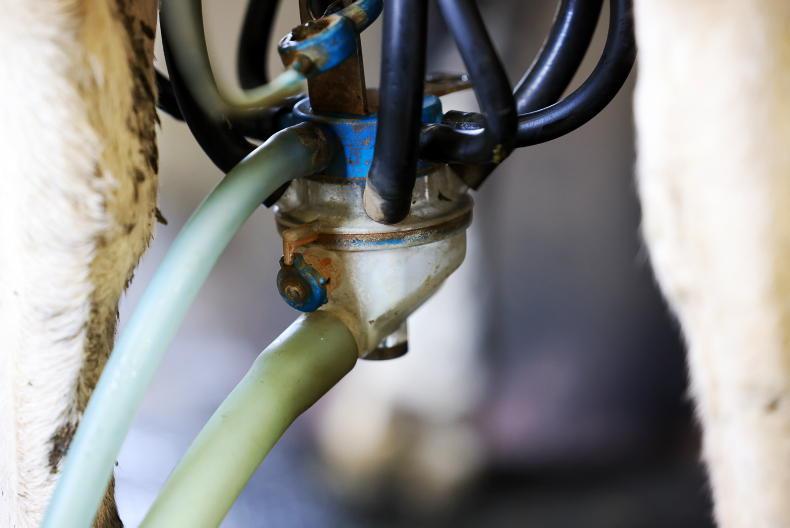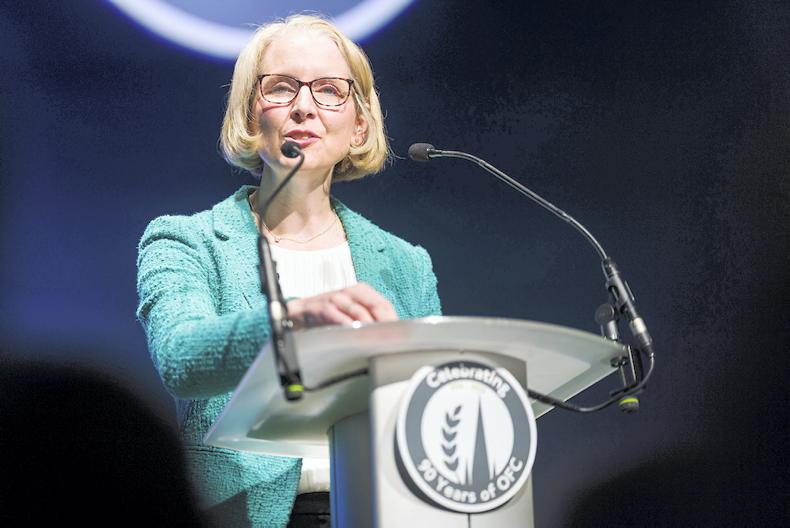Despite a strong campaign mounted by farm lobby organisations across the UK to put into law that future food imports must meet the same as those expected of British farmers, this was rejected in a vote by MPs on Wednesday.
In the end, 328 voted against amending the UK Agriculture Bill, with 277 in favour.
The bill, which effectively replaces the CAP and provides a new framework for agricultural policy (mainly applying to England), now moves to the House of Lords, before finally becoming law.
NI votes
All NI MPs (with the exception of Sinn Féin, which does not take seats in Parliament) voted in favour of inserting a clause on import standards, alongside a number of Conservative MPs, many of whom represent rural constituencies in England.
But with an 80-seat majority in Parliament, it was always likely that the government would win the vote.
The clause would have meant that under a new international trade agreement, any agricultural or food import would have to be produced or processed to the same relevant domestic standards relating to:
Animal health and welfare.Plant health.Environmental protection.It was proposed by Tory MP and chair of the environment, food and rural affairs (EFRA) committee Neil Parish, as well as members of that committee.
He argued that it was about having equivalence of production on imported food.
“I want to see British lamb and more cheese go into America, and I am very happy to have imports from America in a new trade deal, but they cannot undercut our present production methods and animal welfare,” he said.
That position was backed by Upper Bann DUP MP Carla Lockhart, who pointed to the need to protect farmers and consumers from cheap imports that do not meet the standards expected of farmers here.
“We must not sacrifice these standards, which we demand of our own farmers, on the altar of free trade. That must be rectified,” she said.
Against
However, those against the clause maintained that it would block any hope of a free trade deal with the UK, something which former Defra secretary Owen Paterson argued would have “catastrophic consequences” for large parts of the economy.
In her remarks, Defra minister Victoria Prentis repeated government assurances that UK farmers will not be sacrificed in trade deals.
It could make it less likely that countries will do trade deals with the UK
She argued that if the clause was put into law it would have unintended consequences, and could disrupt the supply of food, given that goods that currently meet import standards, could be blocked under this change.
Ultimately, it could make it less likely that countries will do trade deals with the US, and risk the likes of whisky exports, worth £578m, said Prentis.
She also said that if the amendment was passed, in practice it would require the UK to assess the production standards in another country and compare them to UK legislation.
“That would all have to be done by the end of December,” said Prentis.
That December deadline is of course a self-imposed UK deadline, when it wants the current transition arrangements with the EU to end.
Read more
15,000 back NFU’s food standards petition
No new laws on import standards
Despite a strong campaign mounted by farm lobby organisations across the UK to put into law that future food imports must meet the same as those expected of British farmers, this was rejected in a vote by MPs on Wednesday.
In the end, 328 voted against amending the UK Agriculture Bill, with 277 in favour.
The bill, which effectively replaces the CAP and provides a new framework for agricultural policy (mainly applying to England), now moves to the House of Lords, before finally becoming law.
NI votes
All NI MPs (with the exception of Sinn Féin, which does not take seats in Parliament) voted in favour of inserting a clause on import standards, alongside a number of Conservative MPs, many of whom represent rural constituencies in England.
But with an 80-seat majority in Parliament, it was always likely that the government would win the vote.
The clause would have meant that under a new international trade agreement, any agricultural or food import would have to be produced or processed to the same relevant domestic standards relating to:
Animal health and welfare.Plant health.Environmental protection.It was proposed by Tory MP and chair of the environment, food and rural affairs (EFRA) committee Neil Parish, as well as members of that committee.
He argued that it was about having equivalence of production on imported food.
“I want to see British lamb and more cheese go into America, and I am very happy to have imports from America in a new trade deal, but they cannot undercut our present production methods and animal welfare,” he said.
That position was backed by Upper Bann DUP MP Carla Lockhart, who pointed to the need to protect farmers and consumers from cheap imports that do not meet the standards expected of farmers here.
“We must not sacrifice these standards, which we demand of our own farmers, on the altar of free trade. That must be rectified,” she said.
Against
However, those against the clause maintained that it would block any hope of a free trade deal with the UK, something which former Defra secretary Owen Paterson argued would have “catastrophic consequences” for large parts of the economy.
In her remarks, Defra minister Victoria Prentis repeated government assurances that UK farmers will not be sacrificed in trade deals.
It could make it less likely that countries will do trade deals with the UK
She argued that if the clause was put into law it would have unintended consequences, and could disrupt the supply of food, given that goods that currently meet import standards, could be blocked under this change.
Ultimately, it could make it less likely that countries will do trade deals with the US, and risk the likes of whisky exports, worth £578m, said Prentis.
She also said that if the amendment was passed, in practice it would require the UK to assess the production standards in another country and compare them to UK legislation.
“That would all have to be done by the end of December,” said Prentis.
That December deadline is of course a self-imposed UK deadline, when it wants the current transition arrangements with the EU to end.
Read more
15,000 back NFU’s food standards petition
No new laws on import standards









SHARING OPTIONS